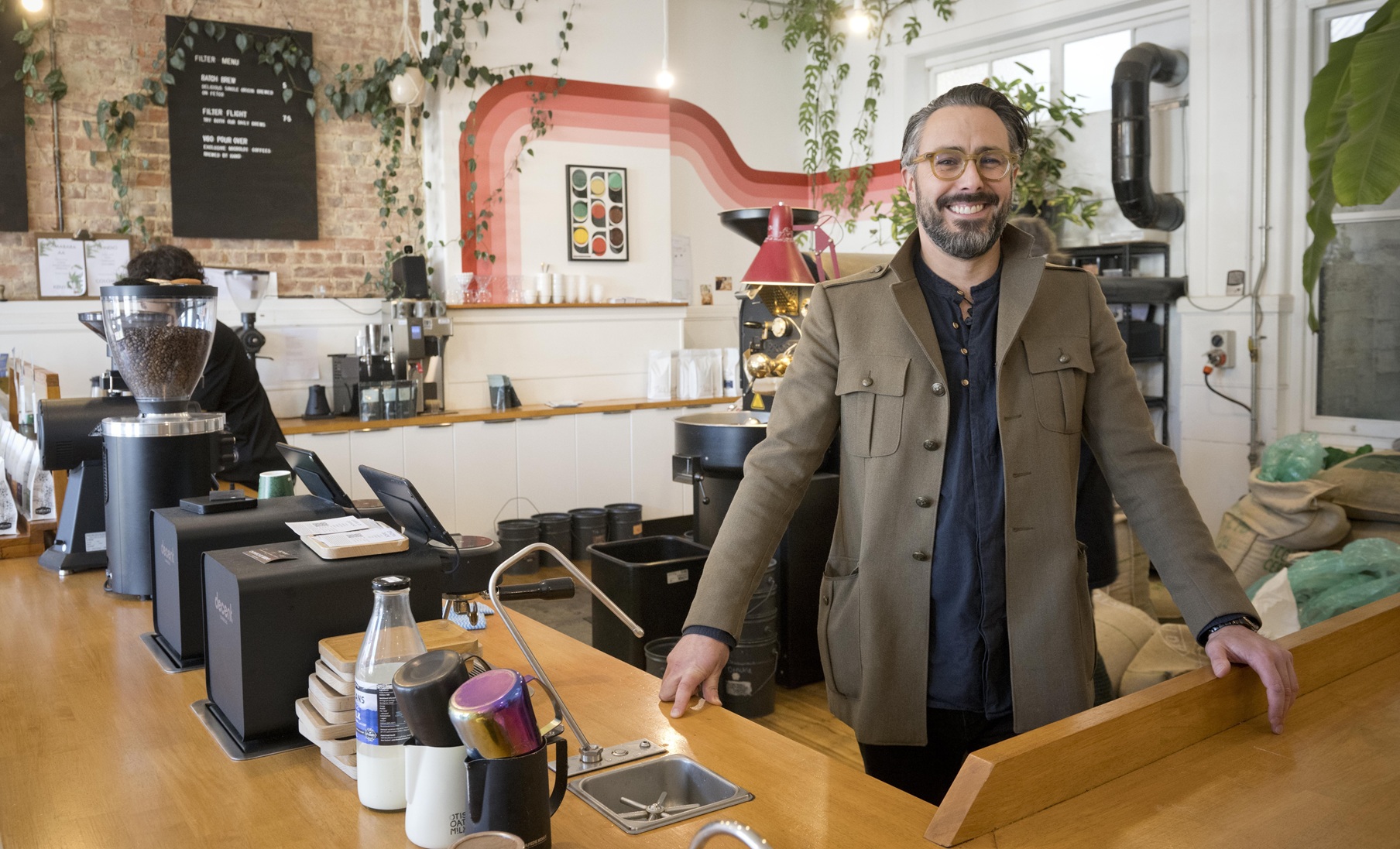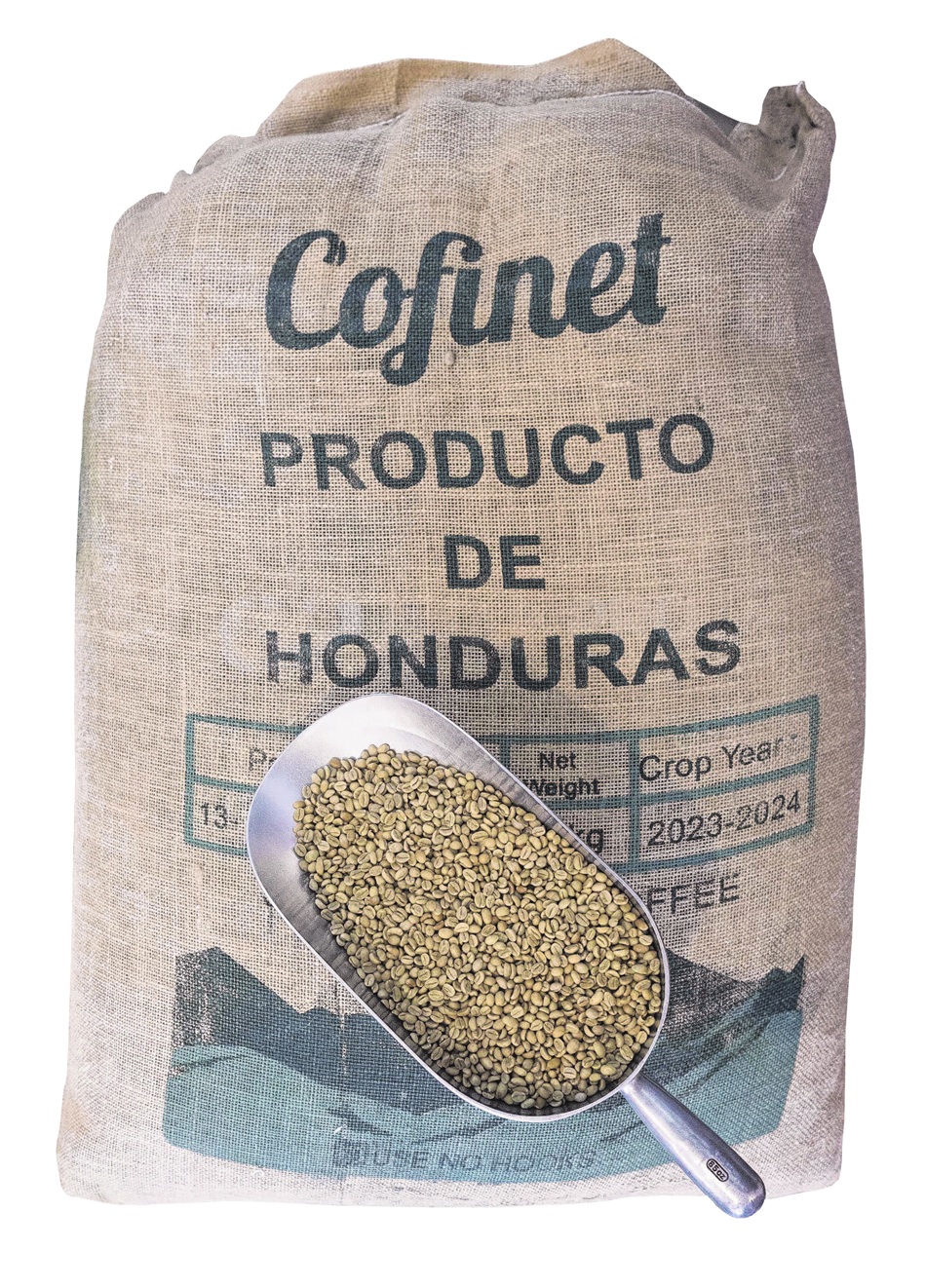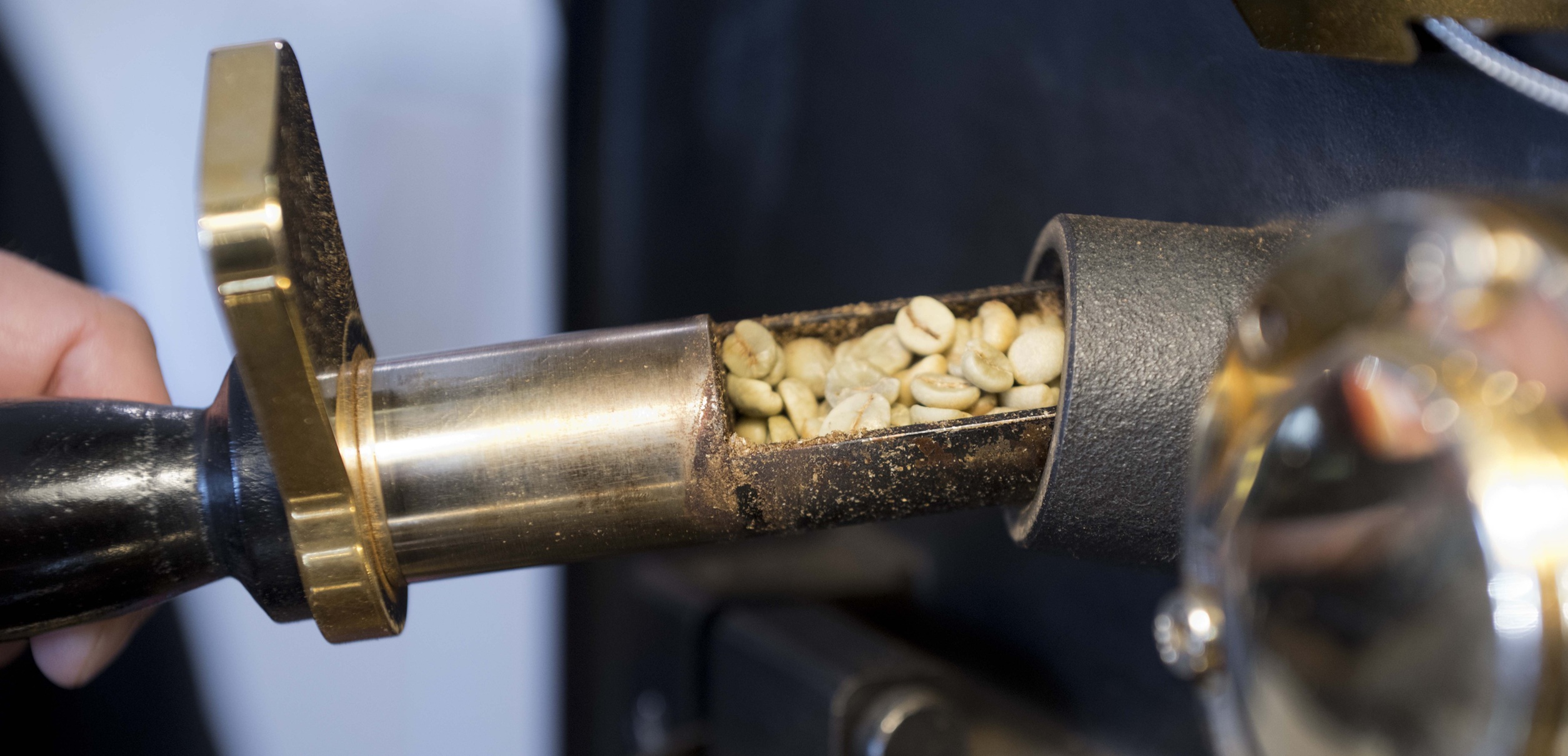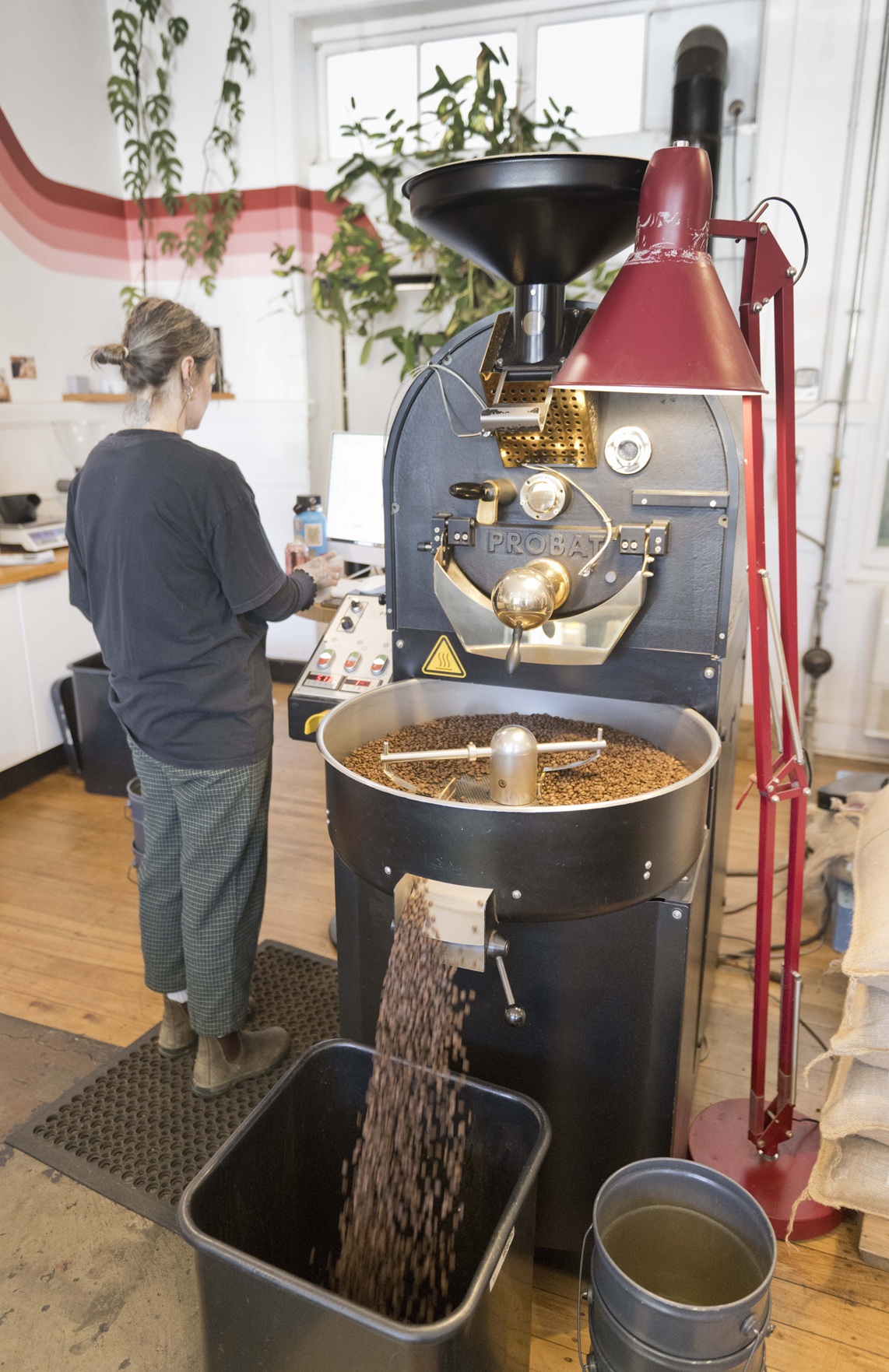
It’s not your average cup.
It carries a definite whiff of alcohol — fruity, sweet — and it has a story.
The beans were grown on a farm near Planadas, Colombia. For more than 30 days the cherries lay fermenting in the Colombian sun, their juice soaking into the beans inside until they turned more brown than green.
A panel of specialty coffee experts scored them 86 out of 100 before they were sealed, packed and shipped across the world to New Zealand.
In Dunedin, the beans were lightly roasted in batches in Vanguard’s Probat roaster for 11 minutes. About an hour ago, just the right amount were ground, just the right way, and brewed at just the right temperature into a thermal carafe, from which this cup was poured.
These are the sorts of details specialty coffee trader Jason Moore could happily, if he had the time, talk about for hours.
It is both his passion and his job — a nice way for things to be, really.
Those who know will recognise in his words the third wave of coffee: a movement that emerged in the 2000s and treats coffee like wine. It focuses on origin, variety, processing and brewing methods to highlight flavour rather than just a caffeine kick.
Two decades on, rising costs and shifting tastes mean the speciality trade now relies on fewer but more dedicated customers willing to pay a premium.
For Moore, though, money has never been the point.
Now 41, Moore has been in coffee since leaving school. He grew up in Wellington in what he calls the "glory days" of the cafe scene.
"A coffee was $3, Fat Freddy’s Drop were playing in town and there was a real buzz in the culture," he recalls. "It was such a cool time to be in the industry and I fell in love with the environment and the people."

The more he understood, the more he realised that while he enjoyed connecting with customers and colleagues here in New Zealand, it was the farmers — away in another world completely — who were doing the real work with coffee.
"It just lit a fire in me."
Moving to Dunedin in the mid-2000s, he worked in hospitality for years, then in 2015 started his own coffee business. Vanguard Specialty Coffee Co now runs a cafe on Princes St and, since 2020, a roastery in Vogel St that produces about 13 tonnes of roasted coffee a year.
While his cafe is his biggest customer, Moore has built a loyal following who buy Vanguard’s beans — most of them unique in New Zealand — over the counter or online. Among them are doctors, engineers, foodies and others who, like him, appreciate the finer things. To Moore, specialty coffee remains an affordable luxury.
"Coffee is not an expensive luxury for the average person. To buy a bag, taste it, push yourself, I love that and I love it when someone tries something different and comes back a week later and says, ‘Oh my god, that was incredible, I wasn’t expecting that’. That’s why I do it."
A coffee is considered specialty when it scores 80 or above on a 100-point scale set by the Specialty Coffee Association.
Trained experts, called Q graders, assess flavour, acidity and body. To qualify, beans must also be ethically sourced and traded and tell a "good" story.
Moore served on the association’s board for two years. He sources beans from around the world, but mostly from Colombia through Cofinet, a small but growing export company run by fourth-generation Columbian coffee farmers who also work with neighbours and small-lot growers to improve practices.
"They’re fully transparent — no middle man, no backroom handshakes, no dodgy trade routes. Coffee goes straight from the farmer, through them, to us."
Moore prefers small lots and avoids mechanised or industrial producers. He stands by the credo that quality is not an accident.
"It happens because people care. They put their heart into it and they’re passionate about what they do."
He knows buying coffee most customers do not fully appreciate will not make him rich.

"At the end of the day, I’d rather create something worth remembering."
Unlike many coffee businesses that rely on blends for bulk sales and have the odd specialty lot, Vanguard is entirely specialty. Moore buys nothing graded below 84.
"When you start tasting coffee, you can really start to taste when quality starts to kick in," he says. "The only reason people buy something of a lower quality is price — and that’s a slippery slope, I think."
Quality compromises are not worth it.
"If we do something wrong, because we have this discerning customer base, if we fudge up a roast or grind something wrong, our customers let us know and I don’t want to be apologising, making mistakes.
"When you are starting a day off with that coffee at home you want a good experience, if we were to cheapen things, our customers would know. I couldn’t deal with that."
Many of his regulars are highly knowledgeable. Some are home baristas with professional equipment, even home roasters.
"They’ll ask all kinds of nerdy questions, and I love it. It shows there are people out there who are passionate, who care where coffee comes from, how it’s processed and ask us how we’d suggest they brew it."
Moore is well aware of the cost-of-living crisis and the grumbles about $7.80 flat whites. His response is that there’s a tastier, higher-quality, more sustainable option for less — a cup of filter.
Because Vanguard roasts and grinds in-house and filter requires no milk, no $30,000 machine or multiple baristas, it costs much less to produce.
"It’s a machine that brews to the right temperature and volume. We just put in good coffee, grind it right, and it comes out delicious."
Still, convincing New Zealanders is difficult.
"Drip filter is a hard sell in a dairy-producing country," he says. "Most people still love their Nespresso, that milky comfort beverage in the morning."

"Because I can taste the farm, the varietal, the processing of it. It’s like when you have a really good glass of wine — you can taste much more ... more than just that it’s a glass for a purpose, you can taste berries or fruit. And when you take that moment and are present in your coffee ritual, it feels great. It transports you to the other side of the world, gives you a glimpse of a farmer feeding his family.
"It probably sounds romantic, but I love that pleasant surprise when you taste something and it’s not what you expect."
Moore may be established enough to rely on reputation and relationships, but specialty coffee is not immune to economic realities.
Climate volatility, US tariffs, the global cost-of-living crunch, shifting consumer tastes, especially among a younger generation less charmed by careful curation, and advancing technology are reshaping the industry.
At the same time, coffee consumption is climbing worldwide, in wealthy and emerging markets alike.
The scale of the money at stake is sometimes startling.
Last month, a Dubai roaster paid $51,000 per kilo for 20kg of 98-point washed green Geisha coffee beans from Panama.
Meanwhile, in China, huge coffee chains are rolling out fully automated stores capable of serving high-quality, customised coffee anytime, anywhere. In New Zealand, mass-market operators such as petrol station-based Wild Bean, now among the country’s largest coffee companies, are refining systems and improving quality.
The coffee business is only getting tougher.
For specialty traders like Moore, the focus is on enduring, not on big profits. Slim margins and cost-covering, he says, can still work without massive price hikes. But for cafes, pressure is intense.
He says many owners use the "coffee crisis" to justify higher prices. Even so, as rent, power and supplies rise relentlessly too, profitability is being squeezed.
"I feel like the days of small, independently owned cafes are numbered. It’s just not a good business model any more. It’s getting very difficult for mum-and-pop cafes to price themselves fairly and still make a living, without pushing prices higher.
"It’s a challenging time for cafes — I don’t know where it ends."












